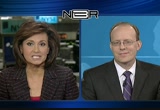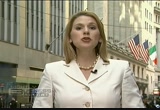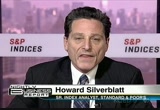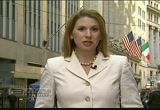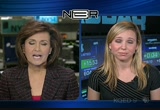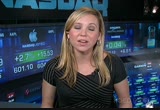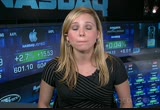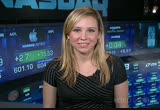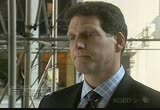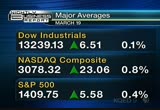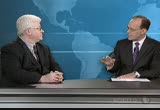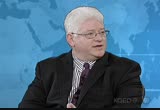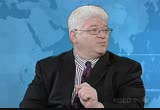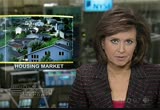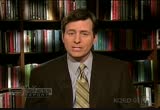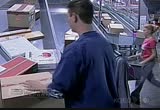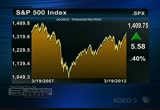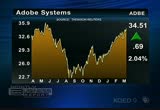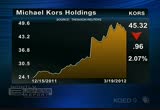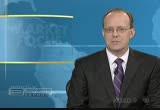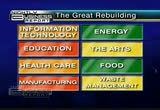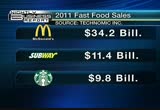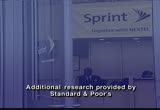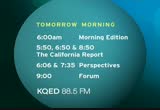tv Nightly Business Report PBS March 20, 2012 1:00am-1:30am PDT
1:00 am
>> susie: apple wows wall street. the stock closes above $600 for the first time, as the company promises investors their first dividend in over a decade. >> i'm erika miller in new york. apple's new dividend may be getting a lot of attention, but i'll tell you why dividends overall may fall out of favor. >> tom: the housing market is shaping up for its best spring selling season in years, but will it be good enough to show a market on the mend? it's "tly business report" for monday, march 19. this is "nightly business report" with susie gharib and tom hudson.
1:01 am
captioning sponsored by wpbt >> susie: good evening, everyone. apple stock closed above $600 a share for the first time ever surging almost 3%. investors gobbled up the stock, after the company announced it will pay a quarterly dividend and launch a stock buyback. tom, first the new ipad and now a dividend. >> tom: apple investors have been calling for a dividend for a long, long time. here's what shareholders can expect. they'll get a quarterly dividend of $2.65 a share, starting july 1. apple also announced it will buy back $10 billion of its own stock starting in september 2013. the moves will use some of the
1:02 am
company's $100 billion cash war chest. >> susie: apple is the latest company increasing buybacks and dividend payouts. share repurchase agreements are at the highest levels since before the financial crisis. and dividend payments now stand at record levels. but which is better for shareholders: dividends or stock buybacks? erika miller reports. >> reporter: buybacks have been mounting a comeback. and investors love them, because they usually boost a company's stock price short term. but there are many studies questioning whether buybacks are good for shareholders long term. u.b.s. wealth management studied buybacks and found they are often poorly timed. >> what we found from historical research is that share buybacks tend to be very cyclical. which actually means that firms tend to purchase their shares more when the economy is doing well and they have strong cash flow. and they don't have a good alternative use for that cash flow. and that often coincides for when the stock price is actually quite high. >> reporter: instead, he says
1:03 am
firms wold be better off buying their stock when the business isn't dong as well and the shares are lagging. apple is hardly a picture of a struggling stock, up almost 50% just this year. there's another big drawback to buybacks-- they're not guarantees. a company can follow through with its purchase plan or cancel it at any time. dividends, on the other hand are cold hard cash. and cutting the payout is seen as a very negative sign. >> dividends have more stability. it's more stability in that once you start paying, each quarter you're going to have to do it. from a personal point of view, it helps my cash flow. i can plan better. >> reporter: apple's dividend is its first in more than a decade. it will cost the company almost $10 billion a year. but, in general, dividends may become less appealing next year, when low tax rates on them are set to expire. the federal tax rate on most dividends is currently 15%. but that rate could triple for people in the top tax bracket. for that reason, s&p predicts
1:04 am
buybacks may have the edge over dividends next year. >> corporations are going to look and say, "what is best for my holders? before i gave you a dollar and were able to keep 85 cents of it. now if i give you a dollar, it's going to be 55/56 cents before city and state taxes." so we think it definitely will have an impact. >> reporter: if it looks like the higher dividend tax will become law, watch for a surge in dividend payouts in december. s&p predicts many companies will make an extra payout this year and one fewer one next. erika miller, "nightly business report," new york. >> susie: tonight's word on the street: apple. joining us now, lindsey bell. she's an investment analyst at thestreet.com. lindsey, nice to you have on the program. >> thank you for having me. >> susie: all right so, many investors were counting on a bigger dividend. of this's been calling it for a dividend all this time and then they were disappoint. compared to apple's
1:05 am
technology peer companies like microsoft or hewlett packard, they pay a bigger dividend. what do you think? >> you know, i think this dividend came in at the low end of what many investors were expecting. but the share repurchase was where the extra bonus came in. most investors i talked to were lacking for four and a half to 5 billion, in share repurchases. we've got 10 billion. and yes, it might be a little bit less than microsoft and intel but it's still a lot better, the dividend i mean, is a lot better than what other big tech companies do offer. >> susie: well, i think everybody is looking at all that cash that apple has. so even after they pay out the dividend and dot stock buyback there's plenty of cash left over. does apple need all that cash? >> you make a very, very good point. and yes, with the $10 billion annual dividend and the $10 billion in share repurchases, all in that's about $45 billion the company is going to spend over three years. they have 34 billion
1:06 am
attached in the u.s. the remaining of that 100 billion is offshore and not readily available to shareholders so they can't really use if for this type of purpose. but that become said, recash flow is expected to be about $45 billion for this year alone. so there's definitely plenty of cash that's going to be left on the table. but you know what, that gives them opportunities to spend on r & d, to do expansion plans and even potential ago which-- acquisitions, so the best part too is that they can increase the dividend down the road. it leaves dry powder. >> susie: no matter what the criticism is, still many analysts today are already forecasting for apple stock to hit $700. some were even sailing 750. so what's your view on the stock. is this time to buy are or time to take your profits. >> you know it is skarby when you look at the stock chart. i mean it's practically going straight up.
1:07 am
and the analysts like you said can't even keep up with it. they are increasing their price target every day. but i do think there's still room for this one to grow. over the longer term this company is going to grow 25%. and let's not forget this is about a product cycle. we saw over the weekend the ipad launch was very, very successful. we have a new iphone 5 coming out in the second half of the year. we have an apple itv coming out in the fourth quarter. a mac book refresh and the best part is china. this company has a big opportunity in china, especially when it comes to the iphone. >> so i think this is a stock you could buy. >> another thing that there's been a lot of chatter about is an apple stock split especially now that it's at $600 a share. what are you hearing about that. could that be the next move? >> you know, management made it clear today on the conference call that that is not the direction that they want to go in right now. they don't see it as making, as being, unlocking
1:08 am
shareholder value in the best way possible. and i kind of agree with them, yes, it would be nice to take that 600 stock and make it a 23 $300 stock but at the same time that makes valuation of this stock a lot more rich. and more difficult to justify buying. >> susie: all right, we're going have to leave it there lindsey. do you have any disclosures to make. dow own apple. >> i do not. >> susie: all right, thanks for joining us, nice having you. >> thank you. >> susie: we've been speaking with lindsey bell with the street.com and you can read lindsey's article at the street.comand there is a link to it on our web site as well. >> tom: one of the wireless companies selling apple's products runs the risk of bankruptcy. that was the assessment of sprint but investment firm sanford bernstein. analyst craig moffett says the nation's third largest wireless carrier is spending heavily to upgrade its wireless network. he thinks the upgrade cost, along with signs the yet-to-be- unveiled iphone 5 will require a wireless technology sprint is
1:09 am
only beginning to build will weigh heavily on the company, raising what he calls a legitimate risk of bankruptcy. >> the proximity of the iphone 5. now that we've seen the ipad. it confirms that the ipad has l.t.e. functionality if there was any doubt that the iphone was going to have l.t.e. functionality that's essentially gone now and unfortunately that just disadvantages a sprint that is already in a very precarious position. >> tom: shares of sprint ended the session down 4.5%. insurance on sprint bonds is pricing in a 50-50 probability of bankruptcy in the next five years. moffett doesn't see an imminent risk of bankruptcy, but he cautions the carrier's i.o.u. pressures start to mount in 2015. >> as tempting as it would be to say that sprint may have found a bottom. this is a very, very risky stock and probably not an appropriate investment for anyone other than specialized types of investors.
1:10 am
>> tom: for its part, sprint declined to comment on the contents of moffett's report. >> susie: still ahead, it looks like the stock market's more bullish on housing than the home builders themselves. that apple dividend news juiced up the markets. the major stock averages rose as investors were inspired by apple. the dow added 6.5 points, the nasdaq up 23 and the s&p tacked on five points. >> tom: gold prices climbed a fraction today, but remain below $1,700 an ounce. as the u.s. economy seems to be gaining strength, gold has suffered some. james steel is an analyst with h.s.b.c. securities. he joins us in miami. >> good evening. >> tom: so after several years of double digit increases in the price of gold per ounce is this rush over? >> i don't think so. structurally the long-term
1:11 am
bull market that remains in fact-- intact there is no evidence it has been reversed. the rally may have been plunted a little bit towards the end of last area when we got a lot of liquidation selling. and more recently when bernanke has distanced himself a little bit. >> the chairman of the federal reserve in the u.s. >> that's correct, yes. and the two year have gone, its bond yields have risen a little bit. >> yeah. >> we've seen yields rise considerably. your forecast for gold prices over the next three years. ash average price of 1850, below 1700 tonight. you think 1800 dollars an ounce next year, 1750, still kind of some easing pressure in gold prices. are we going to see the high this year? >> well, we're bullish on the market going forward. from these price levels for all three yearout. but it looks as if the second half i think will be particularly robust. because that's when we're
1:12 am
looking for the u.s. dollar to pull back a little bit. there's an inverse corelation between the dollar and gold. we also think there will be some increased official sector, of purchases they've been very good buyers last area and the year before. >> the central bank will be in there buying gold. >> we, i believe that will be the case, yes. >> let's talk about silver praises because it kind of straddles between precious and industrial usage. silver prices have been trending lower over the past 12 months. stuck in the low 30s here. will it be able to break out? >> i think it's going to be difficult. as we approach $40 i think there will be some muts el memory from when we got up to 50 dollars in may and we came back so quickly. also i think it's hard to given that it's got greater supply, particularly from the minds then gold or platinum or palladium has, i think it's difficult to justify it above that $40 level so we're more comfortable a little bit to the upside from where it is now. >> a little less bullish. you mentioned platinum and palladium. >> that is your choice for
1:13 am
the best price appreciation this year, of precious metals. best known for its use in catalytic converts. why palladium. >> both platinum and palladium will benefit from the recovery in the auto industry. even though china has slowed down a little bit, the united states has moved far ahead. and we've got the greatest marginal growth of any large industry. and that is going to absorb a significant amount of platinum and palladium. also we have supply both from south africa and from russia for both platinum and palladium bhupal add yaum-- palladium we think is more is difficult from a stock perception so it might go higher. >> tom: so 700 or so for palladium, how high this year. >> look energy for the market to get up to 775. >> tom: okay, about a 150% rally. >> again for more in the second half of the year. >> tom: has the diversification into precious metals is that play over. have people diversified their assets partially into precious metals enough that you are not seeing those buyers in the market? >> we don't think it is a
1:14 am
crowded trade. gold and preshuts metals are one of those things that is talked about more than there is a lot of activity. a lot of people give the impression of having a significant amount of bullion but when you drill down, i don't think many investors have really been greatly exposed to the market. >> are you long in any of these or short. >> no, i'm not allowed to be. >> james steel along with us. he covers the commodity and precious metals from hsbc securities. >> susie: a key week for readings on the housing market started on a flat note: homebuilders are about as optimistic as they were last month. throughout this week, we'll see the latest on housing starts, sales and homebuilder earnings. darren gersh looks at what may be shaping up as a the strongest year for housing since the bubble burst. >> reporter: this year the stock market seems to be more bullish on home builders than the builders themselves. the national association of home builders' reading of builder sentiment didn't budge this month, staying stuck a long way from what economist david crowe calls a mild comfort level.
1:15 am
that's also what crowe is expecting to learn from readings later this week on home sales and housing starts. >> i don't think we are going to see any barn burners. this is not a recovery that is just going to leap forward at a moment. it's going to continue to be a slow process. >> reporter: 2011 was the worst year on record for new home sales. but this year investors seem confident the worst is over. as a group, stocks of home builders are up 26% year to date, double the gain for the broader market. pointing to an improving labor market, low mortgage rates and plenty of pent-up demand, investors think survivors of the brutal housing bust are well- positioned for the future. >> i think a lot of the home but builders still have to compete with foreclosures and falling prices in many markets. >> we've yet to see any significant surge in starts or sales on the new side, so i think those stock price movements are anticipatory of an improving market. >> reporter: housing analyst alex barron expects kb homes will show very strong revenue
1:16 am
growth when it reports at the end of the week. same with lennar next week. but barron is looking for kb home to report a loss due to hefty interest costs and lennar to exceed expectations. and he predicts investors will increasingly focus on that kind of relative performance in the coming year. >> the companies that are losing money, i think investors are going to think twice about owning those. >> reporter: which companies do well may also depend on how much business they do in the 100 markets where the national association of home builders says the economic foundation is strongest and prices are rising. darren gersh, "nightly business report," washington. >> susie: the world's largest
1:17 am
>> susie: the world's largest delivery company is getting bigger. u.p.s. is buying dutch shipping firm t.n.t. express for almost $7 billion. u.p.s. is confident the all-cash bid can overcome any european union regulatory hurdles. it has even agreed to a reverse break-up fee, where u.p.s. would pay t.n.t. roughly $260 million if the deal is blocked. u.p.s. is counting on the deal to boost international sales by 50% in the next five years. investors really like the news, their shares were the best movers on wall street, rising 2.70. that works out to 3%. not bad. >> tom: nice vote of confidence for a buyer making that investment in international shipping it
1:18 am
helped lead the transports here it this evening, susie. let's see what else is moving with tonight's market focus. >> tom: apple joining the ranks of dividend paying stocks helped the major stock indices continue to climb to post-recession highs. the s&p 500 saw buying throughout the session, even though it cooled somewhat from its session high in the early afternoon. it has been an historic rally for the index, shooting to its highest level since may 2008. it's now just 10% below its record high hit in the fall of 2007. thanks to apple, it was the tech sector behind today's gains, followed by the financial and energy sectors. but none of the top three were up more than 1%. while apple led the tech sector, companies suspected of supplying parts to apple's newest ipad weren't far behind. by the way, apple has sold three million of its newest ipad since its launch friday. a trio of semiconductor makers-- broadcom, texas instruments and
1:19 am
qualcomm all rose at least 2%. one tech to watch tomorrow will be software maker adobe systems. shares were under pressure after the closing bell tonight. that pressure came after adobe reported earnings on target with estimates at 57 cents per share. but revenues came in shy of expectations. critics have worried about the company's shift to charging subscription fees away from a more traditional software licensing business model. it first announced that change in november, after taking an initial hit to its share price, the stock has been able to rally. it was up 2% during the regular session today. however, it dropped almost 5% below $33 per share after reporting disappointing revenue. the first quarter is expected to be disappointing for steel makers. several of them already have issued profit warnings thanks to lower demand and finished prices falling faster than raw material prices. we have seen some optimism come back to steel stocks this month,
1:20 am
including today. u.s. steel's 6% rally was the best among the s&p 500 stocks. despite today's rally, u.s. steel shares are down 40% over the past year. we also some after the close optimism from fashion designer michael kors. this company just came public late last year. shares were down 2% during the regular session, but were 4% stronger after the bell. that came after the company raised its quarterly earnings guidance even though it cautioned its revenue may be disappointing. it blames that on problems with a new distribution center delaying deliveries. the company also is taking advantage of its share price more than doubling since its initial offering. it is looking to sell more stock according to the "wall street journal." meantime, retailer kohl's fell 3% on heavy volume. in its annual report it says it will be less aggressive passing along higher costs to shoppers, hurting its profit margins. while the stock indices are
1:21 am
running higher, so are bond interest rates, meaning bond prices have been moving lower. bond interest rates and prices move in opposite directions. the yield on the ten-year treasury note jumped to almost 2.4%. that's the highest yield, lowest price of the year. rates have pushed significantly higher in just the past week, moving from two percent to tonight's settlement at almost 2.4%. the sell-off in bonds began after the federal reserve was slightly more optimistic on the economy in last week's meeting. and that's tonight's market focus. >> tom: we should learn tomorrow if a trade fight brewing between the u.s. and china will move forward.
1:22 am
this fight is over solar panels and whether chinese manufacturers have used subsidies from their government to drop the cost of the panels then selling those panels in america at prices below their cost. more than 150 u.s. solar companies, including seven manufacturers call the practice illegal, saying it has hurt the solar industry in the u.s. >> demand is growing in the united states for solar. its doubled each of the last two years. this is an industry that should be growing and adding thousands of jobs and dozens of companies. instead, china, with its government-sponsored industry and subsidies has taken that growth and is looking to dominate the world market through the expansion of its solar industry. >> tom: solar panel prices fell 50% last year, hurting profits and the stock prices of manufacturers. critics point to the below cost chinese-made panels for a dozen u.s. makers laying off workers, going out of business or declaring bankruptcy. if regulators agree with the complaint, chinese-made solar panels may be slapped with tariffs.
1:23 am
just today, the commerce department slapped tariffs on chinese-made steel wheels. u.s. makers argued they were unfairly subsidized by the chinese government and sold below market value. >> susie: here's what's on our radar for tomorrow. the chairman returns as professor for one day. former princeton professor, now federal reserve chairman ben bernanke kicks off a series of lectures to college students about the federal reserve. meantime, treasury secretary timothy geithner is on capitol hill to talk international finance with congress. the web has changed the way we think about business and how we get things done. tonight's commentator says its time to apply that same re- thinking to corporate america. here's billy parish, co-author of "making good." >> every day my generation is told our prospects are bleak. these are tough economic times, but the world i have had a glimpse of is filled with jobs because there is so much work to do.
1:24 am
today we need to rethink, redesign and rebuild every industry in a way that does good. from architecture to the automobile every part of our economy will be retooled for the 21st century. this is where the jobs are. for my book "making good," we interviewed hundreds of people working in diverse industries. re-imagining information technology, energy, education, the arts, health care, food, manufacturing and waste management is a multi- generational project that will employ tens of millions of people. this is a great rebuilding we should all embrace, a great rebuilding we can all be a part of. the most profound changes in our country have always come from the people, not from congress, wall street, k street or even pennsylvania avenue. we can't afford to wait for the change to come to us, we must proactively be a part of it.
1:25 am
then we will all be making good. i'm billy parish. >> tom: and finally tonight, there's a new pecking order in burger land. wendy's has dethroned burger king as the country's second largest hamburger chain by sales volume. wendy's had sales of $8.5 billion last year, while b.k.'s sales were $8.4 billion. mcdonald's still rules when it comes to burgers with over $34 billion in sales. and for fast food overall, mcdonald's is number one, but its followed by subway and starbucks where sales neared $10 billion last year. susie i will put you down for one double cheeseburger. >> i have a real weakness for the french fries. i don't usually go for fast food but i will take the french fry. >> tom: i'll take the burger, you get the fridays that is nightly business report for this monday, march 19th. have a great evening,. >> susie: same to you, tom. good to morrow
1:26 am
128 Views
IN COLLECTIONS
KQED (PBS) Television Archive
Television Archive  Television Archive News Search Service
Television Archive News Search Service 
Uploaded by TV Archive on

 Live Music Archive
Live Music Archive Librivox Free Audio
Librivox Free Audio Metropolitan Museum
Metropolitan Museum Cleveland Museum of Art
Cleveland Museum of Art Internet Arcade
Internet Arcade Console Living Room
Console Living Room Books to Borrow
Books to Borrow Open Library
Open Library TV News
TV News Understanding 9/11
Understanding 9/11
